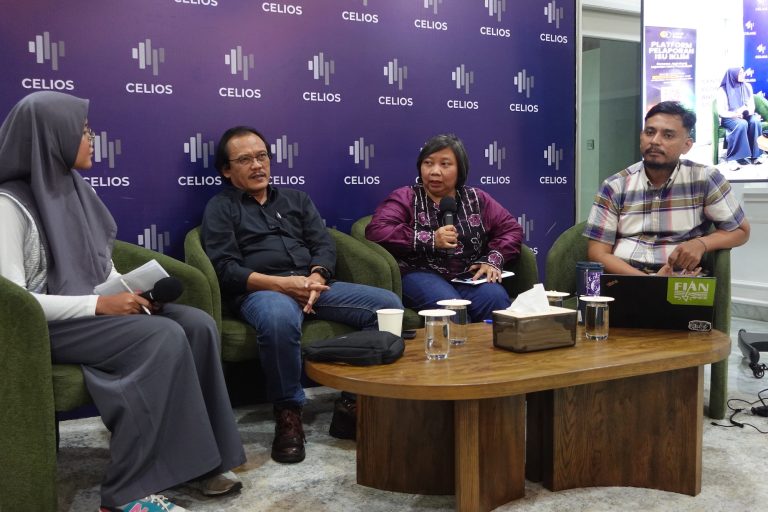Jakarta — Civil society groups and experts have warned that Indonesia’s flagship food estate projects and the Free Nutritious Meal (MBG) program are failing to address the root causes of the country’s food crisis. Instead, they argue, these initiatives risk deepening inequality and threatening the rights of small farmers, Indigenous communities, women, and other vulnerable groups.
Speaking at the Nexus of Three Planetary Crises bi-weekly forum on Tuesday, September 30, IPB University Professor Dwi Andreas Santosa stressed the distinction between food security and food sovereignty. “Food estates violate all four pillars of food development—from land suitability to socio-economic aspects. If forced, they will only create new crises,” he said, adding that declining farmer households and the criminalisation of seed farmers discourage younger generations from entering agriculture.
Marthin Hadiwinata of FIAN Indonesia described food estates as both a technical failure and a human rights violation. He pointed to recurring hunger in Papua since 2018 and noted that over 17 million Indonesians remain food insecure. “The solution is not new mega projects, but genuine agrarian reform involving small farmers and Indigenous peoples,” he said.
Komnas HAM Chair Anis Hidayah said that food is a fundamental human right. “Food estate and MBG projects often ignore human rights principles, even opening the door to new violations. Development must not perpetuate evictions, pollution, or criminalisation,” she warned.
The discussion concluded with a strong call for “land for the people, not food estates,” underscoring that true food sovereignty can only be achieved if the state prioritises the rights and livelihoods of its citizens over large-scale projects that benefit a few. (nsh)
Banner photo: (from right to left) Marthin Hadiwinata from FIAN Indonesia, National Human Rights Commission Chair Anis Hidayah, and Professor Dwi Andreas Santosa from IPB University, speaking at the biweekly forum “Nexus of Three Planetary Crises,” September 30, 2025 (Source: Madani Berkelanjutan)















